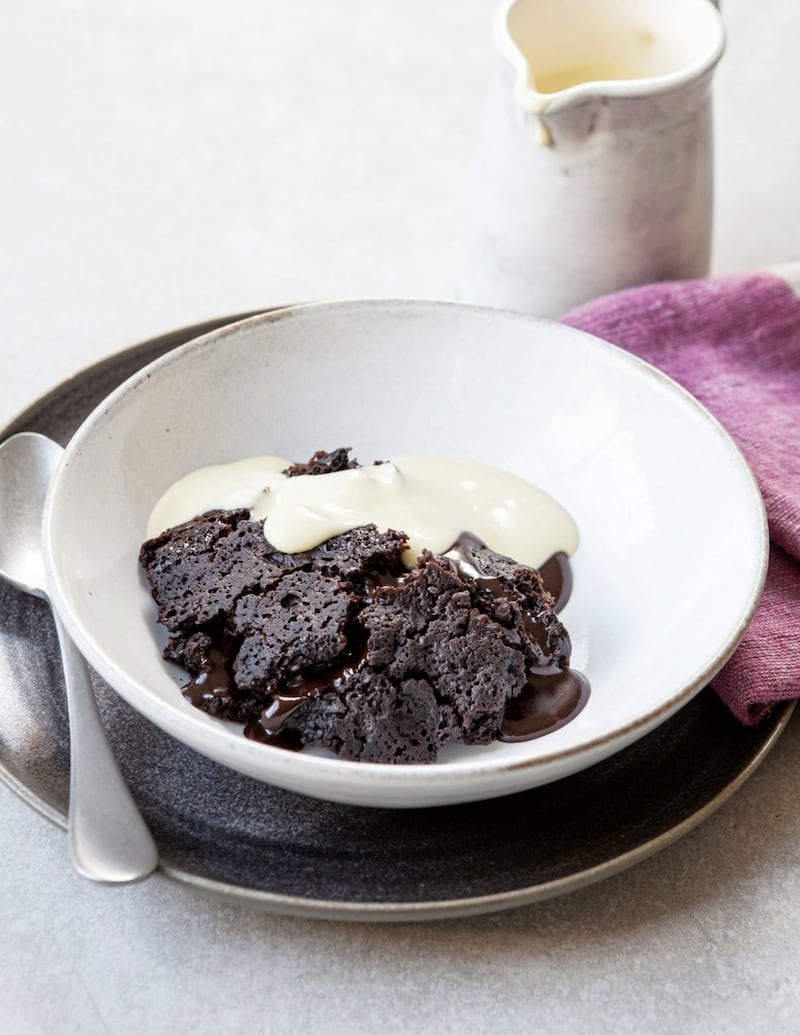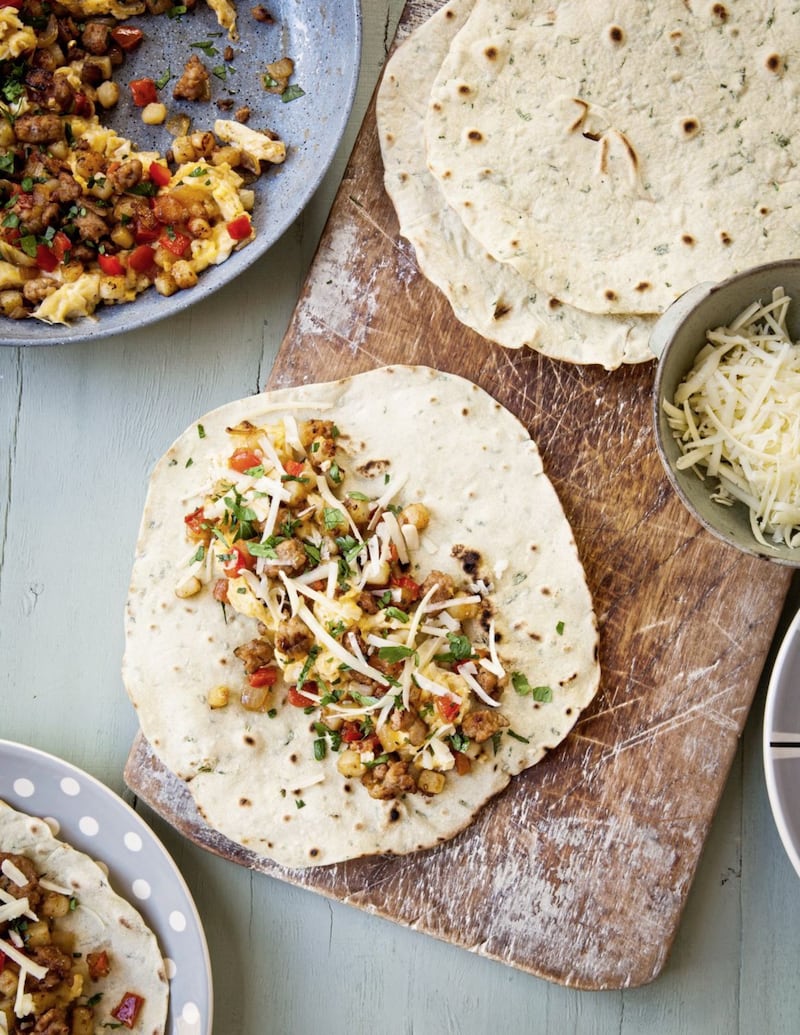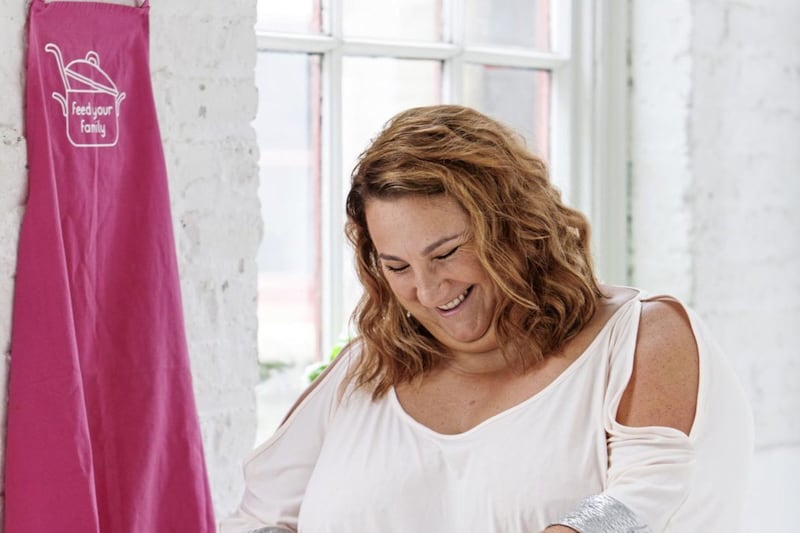FIVE years ago Lorna Cooper set up a Facebook page (facebook.com/fyf20quid) to help people get dinner on the table more easily, healthily and – most importantly – cheaply.
The Scot recalls how at the start, "we had people commenting and messaging us saying, 'We've got £3.75 to last us until Thursday, what can we do?' Or people saying, 'I'm on maternity leave so I've only got £15 to buy the next four days' worth of food'." Half a decade on, she says, "that's been consistent".
Food poverty is being increasingly (and quite rightly) talked about more than ever before, and in terms of how many people are affected, Cooper says, "one person is way too many, isn't it?"
Cooper (43) started the FYF community after a back injury left her off work sick for almost a year. As a mum of three and stepmother of two, her family's £100-a-week food bill had become pretty much untenable.
"I started to look at the budget to see where I could cut costs," she remembers, and began scrapping expensive jarred sauces, cooking from scratch rather than just heating stuff up, and soon found herself sharing tips online with other people in a similar position. FYF now has more than half a million followers – and a new cookbook to match, Feed Your Family For £20 A Week.
But it's not just about handing someone a 20-quid note and pushing them into a supermarket, saying: 'Here you go'. Instead, Cooper is pragmatic, providing an eight-week, £160 meal-plan (to feed four people), and employing batch-cooking, buying in bulk and using up leftovers in ways that turn basic actions into tools of total ingenuity.
The ethos behind the food – which she says is "not fancy; it's healthy, it's filling" – takes you back to "what your granny or your great-granny would've cooked, from scratch. They wouldn't have thrown out leftovers, they would've gone in the next meal."

Cooper says these are skills a lot of people just haven't had the opportunity to learn.
"That's one of the reasons I started the Facebook page. I didn't get taught it. I lost my mum when I was only 11 and I didn't know how to cook. I hadn't been taught budgeting. Home Ec at school for us was making a mandarin cheesecake and learning to sew a cushion – not exactly the most helpful," she says.
"I was brought up in the 80s, when processed food was just first coming out. People were all, 'Oh this is fabulous', and I think a lot of mums were going to work [doing] full-time hours for the first time in a good few years as well, so a lot of it was lost." FYF is designed to help fill that gap for people.
These days, Cooper is well clued up. "It's become a challenge and I really enjoy it," she says, describing how she'll spot a recipe or dish and think, 'Oh, I could make that', before going home and whipping up a significantly cheaper, veg-heavy version.
"Occasionally my partner will complain now, because he says if we go out for something to eat, I'm always complaining that, 'I would have done that differently', or ,'I would have used that instead', or, 'How much is that!?!'

So how can you stretch £20 into a full week of meals? Well to start with, for Cooper, doing a big shop involves more than one supermarket. "There's a lot of shopping about," she says, "to see where's got the best bargains."
And when you get home, it's about being savvy with your time and your freezer ("What I mean when I say 'batch-cooking' is it doesn't take any more time to make two lasagnes than it does to make one").
Despite the zeitgeist for veganism, Cooper's approach to organic and free-range produce is just as pragmatic.
"When we didn't have a lot of money, my main thing was getting food into the kids to make sure they were fed," she says firmly. "If you can afford to, if you want to, you can use more organic and free-range things, but the core of the book at the moment, it's to keep the costs as low as possible."
That said, eating more affordably often has its own ethical and sustainable plusses, she points out – it focuses on minimising waste, going big on veggies and pulses (which are naturally cheaper), and by default, using less meat.
"Maybe the average family would use 500g mince to make a lasagne," explains Cooper. "We only use 200g."
There is one item she won't scrimp on though: Butter. "I'll always buy real butter, always have done," she says. "I won't use margarine. It's only one ingredient away from plastic!"
It resides alongside constant fridge companions, yoghurt and leftovers, while the rest of Cooper's kitchen is "full! I actually moved house eight years ago and I went from having a tiny kitchen to a kitchen that's three times the size of the one I was in before. I thought, 'Look at all these units, I'll never fill these!'" (Now they're packed, with extra stuff stacked on top.)
Part of it is down to the fact she's in a position where, if a crate of tinned tomatoes is on offer for instance, she's able to stock up. The other part, she says, is "there's a tiny wee bit of the... you just don't know what's round the corner." At least if you can put £20 together, you'll be set.
:: Feed Your Family For £20 A Week by Lorna Cooper, photography by Andrew Hayes-Watkins, is published by Seven Dials, priced £16.99. Below are three recipes from the book for you to try.
LOADED BREAKFAST BURRITOS
(Serves 12)
Oil, for frying
2 sausages, removed from their skins
1 onion, diced
1/2 pepper, diced
1 tomato, diced
6 eggs
50ml milk
50g cheese, grated
Parsley, chopped
2 cooked potatoes or 1/2 tin, diced
12 wraps
Method:
Pour a little oil into a frying pan and add the sausages, breaking them up with a wooden spoon (as you would if you were browning mince). Add the diced onion and cook for five minutes. Add the pepper and tomato and cook for a further five minutes.
Whisk the eggs in a bowl and add the milk. Add this to the sausages and veg, and cook like you would scrambled eggs until the egg has cooked through.
Remove from the heat and add the grated cheese and parsley. Stir through the potatoes. Spoon the mixture onto 12 wraps and then either roll or fold them up, ready to eat.
TUNA FISHCAKES AND SPICY SALMON FISHCAKES
(Serves 4)
For the tuna fishcakes:
4 spring onions, sliced
1 garlic clove, crushed
20g butter
800g cooked potato, mashed
100g frozen sweetcorn, thawed
1tsp parsley
2 x 110g tins of tuna, drained
Salt and pepper, to season
For the salmon fishcakes:
4 spring onions, finely chopped
1 garlic clove, crushed
Cooking oil, for frying
500g cooked potato, mashed
1tbsp chilli flakes
1 x 210g tin of salmon, drained
Zest of half a lemon
Salt and pepper, to season
For the prep:
2tbsp plain flour
1 egg, beaten
2tbsp cold water
100g breadcrumbs
Cooking oil, for frying
Method:
Gently fry your spring onions and garlic in oil/butter for two minutes over a medium heat. Remove from the heat and place in a large bowl, leaving to cool slightly. Once cool, add the rest of the fishcake ingredients. Mix well using your hands, then shape into patties. (Do this process separately for both the tuna fishcakes and the salmon fishcakes.)
Next, set up your 'fishcake prep line': three bowls, one with flour, the next with egg and cold water and the third with breadcrumbs. Coat the fishcake in plain flour, then dip in the egg. Finally, coat in breadcrumbs. Repeat with the other fishcakes, then chill in the fridge until you're ready to cook.
Heat the oil in a large frying pan and shallow-fry the fishcakes for four to five minutes per side, until golden brown. Drain on kitchen paper, then serve with simple mint or carrot salad.
SLOW COOKER CHOCOLATE CAKE
(Serves 8)
For the cake:
130g plain flour
150g white sugar
3tbsp cocoa powder
2tsp baking powder
1/4tbsp salt
125ml milk
75g butter
2tsp vanilla essence
For the topping:
100g caster sugar
100g soft brown sugar
25g cocoa powder
350ml hot water
Ice cream or custard to serve
Method:
To make the cake, combine the dry ingredients in a bowl, then make a well in the centre. Add the milk, butter and vanilla essence to the well, and whisk until smooth. Pour the batter into the slow cooker.
To make the topping, mix the sugars and cocoa powder together in a bowl and sprinkle evenly over the top of the cake batter. Pour the hot water evenly over the mix – and don't stir! I know it doesn't make sense, I know you'll want to, but trust me, don't stir!
Put the lid on and cook on high for about four hours. Serve straight out of the slow cooker with ice cream or custard.




